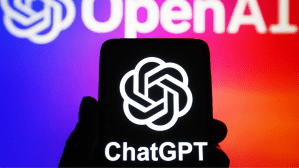The recent emergence of DeepSeek, a low-cost Chinese artificial intelligence (AI) foundational model, has sparked fierce competition in AI, leading to increased adoption by Indian users. A survey by LocalCircles indicates that three out of every 10 users, or nearly 30%, of AI platforms in the country have either switched to DeepSeek or are considering to shift soon.
The reasons can be attributed to DeepSeek’s affordable R1 model, which allows users to develop their own models using the platform’s open source APIs at significantly less cost compared to competitors such as OpenAI’s ChatGPT.
DeepSeek has claimed it took just two months and cost under $6 million to build its AI model compared to the hundreds of millions of dollars deployed by its bigger rivals.
“DeepSeek with its low cost is likely to be a great resource for startups aiming to create sectoral apps in health, finance, retail, etc,” LocalCircles said.
The LocalCircles survey on ‘How India uses AI’ received over 92,000 responses from citizens located in 309 districts of India. 64% respondents were men while 36% respondents were women. The survey was conducted between August 2024 and February 2025.
Based on the results, one in two Indian internet users are already using AI platforms and ChatGPT is widely used. Nearly 9% of the surveyed indicated they use Perplexity, followed by 6% Co-Pilot directly or via Bing at 6%. 3% indicated Gemini via Google and Llama each.
The survey assumes significance as DeepSeek has emerged as the most downloaded mobile app on Apple’s App Store in India giving strong competition to bigger players like OpenAI, Gemini and Llama, among others.
India is also looking at testing the Chinese open source platform on local servers to avoid data privacy issues. Notably, DeepSeek’s application tend to store users data on its servers located in China, which in a way poses concerns.
Other key findings of the survey suggest that 66% of the respondents use the AI platform for finding information while 25% use them to summarise documents or other use cases.
Only 18% AI users find information generated from AI platforms to be inaccurate and 90% Indian AI users surveyed, use these platforms in text mode.
“With the fast-evolving technology landscape and user preferences, it is bound to be a challenge for the government to have rules and regulations around AI usage and ensure that AI continues to be a constructive and enabling force,” LocalCircles said.
The government last week also announced plans to build its own foundational models over the next 8-10 months. It plans to develop models that will have an Indian context which will align with Indian languages, culture and datasets, without any bias.
To facilitate the development of AI foundational model, the government has also invited proposals from startups, researchers and entrepreneurs. It will explore various models like initially providing direct funding to startups, with milestone-based disbursements.









